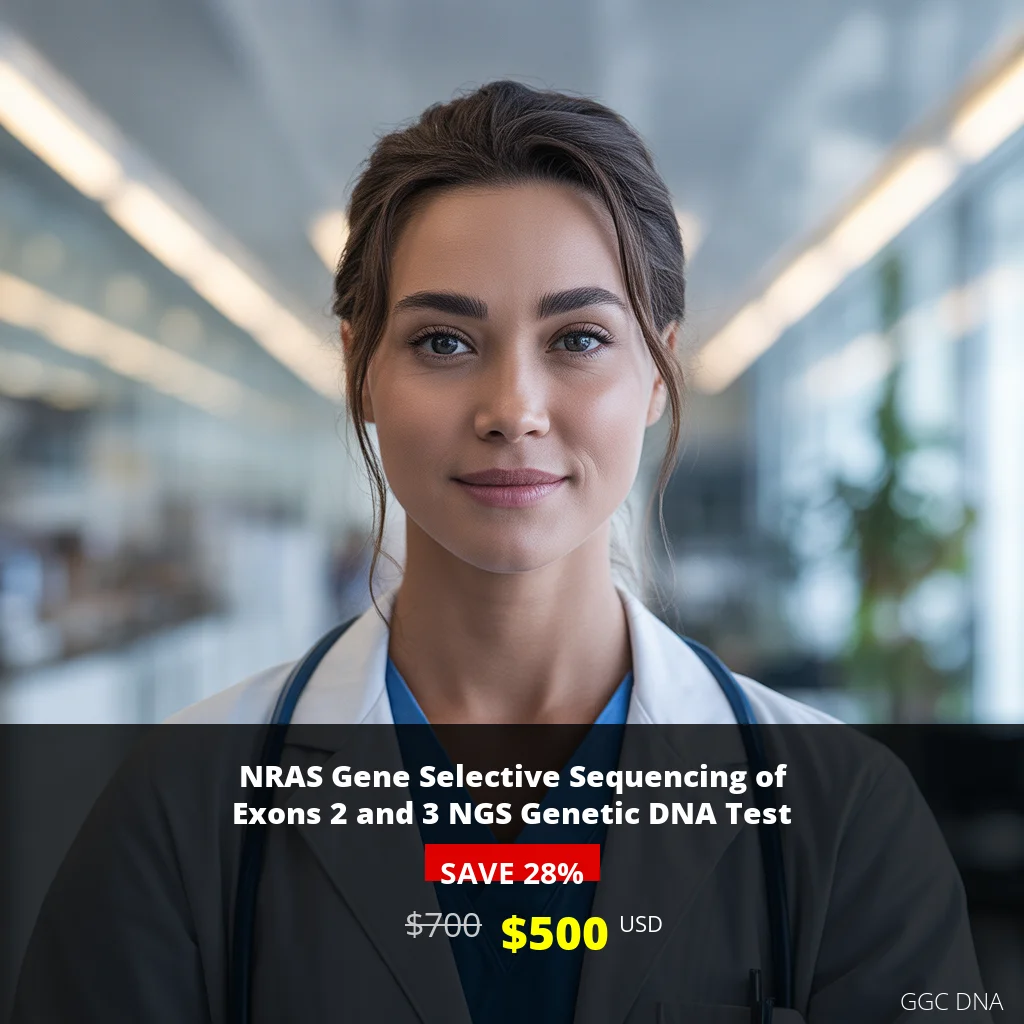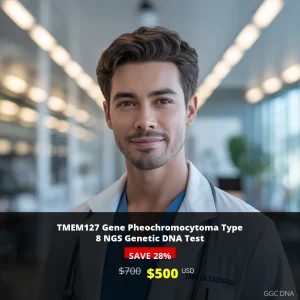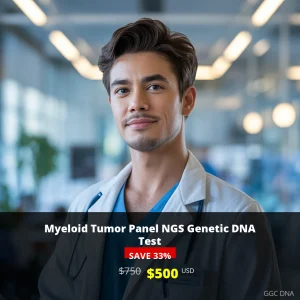NRAS Gene Selective Sequencing of Exons 2 and 3 NGS Genetic DNA Test
Comprehensive Introduction to NRAS Gene Testing
The NRAS Gene Selective Sequencing Test represents a significant advancement in cancer genetic diagnostics. This specialized examination focuses on the NRAS gene, a critical component of cellular signaling pathways that regulate cell growth and division. When mutations occur in specific regions of this gene, particularly exons 2 and 3, they can lead to uncontrolled cell proliferation and the development of various cancers.
Using state-of-the-art Next-Generation Sequencing (NGS) technology, our test provides unparalleled accuracy in detecting these mutations. The importance of this testing cannot be overstated, as NRAS mutations are implicated in approximately 15-20% of melanoma cases, 5-10% of colorectal cancers, and various leukemia types. Early detection of these mutations enables healthcare providers to implement targeted therapies and personalized treatment approaches.
What the NRAS Gene Test Measures and Detects
This sophisticated genetic analysis specifically targets and sequences exons 2 and 3 of the NRAS gene, which are known hotspots for clinically significant mutations. The test identifies:
- Point mutations in codons 12, 13, and 61 of the NRAS gene
- Single nucleotide variants that affect protein function
- Specific mutations associated with treatment resistance
- Genetic alterations that impact RAS/MAPK signaling pathways
- Mutations that may influence response to targeted therapies
The NGS technology employed ensures comprehensive coverage of these critical regions, providing detailed information about mutation status that can guide therapeutic decisions.
Who Should Consider NRAS Gene Testing
Clinical Indications and Symptoms
This test is particularly recommended for individuals presenting with:
- Diagnosed melanoma with unknown mutation status
- Colorectal cancer patients being evaluated for targeted therapy options
- Individuals with acute myeloid leukemia or myelodysplastic syndromes
- Patients with family history of NRAS-associated cancers
- Those with multiple primary tumors suggesting genetic predisposition
- Individuals with treatment-resistant cancers requiring alternative approaches
Risk Factors and Clinical Scenarios
Healthcare providers typically recommend NRAS testing when:
- Planning treatment with BRAF inhibitors for melanoma
- Evaluating eligibility for specific clinical trials
- Assessing prognosis in various cancer types
- Developing personalized cancer management strategies
Significant Benefits of NRAS Gene Testing
Undergoing NRAS gene sequencing provides numerous advantages for cancer patients and their healthcare teams:
- Personalized Treatment Planning: Identifies mutations that may respond to specific targeted therapies
- Improved Prognostic Assessment: Helps determine disease progression and potential outcomes
- Clinical Trial Eligibility: Opens doors to novel treatment options and research studies
- Family Risk Assessment: Provides information about potential hereditary cancer risks
- Treatment Optimization: Prevents ineffective treatments by identifying resistance mutations
- Comprehensive Cancer Management: Supports multidisciplinary approach to cancer care
Understanding Your NRAS Test Results
Interpretation Guidelines
Your test results will be carefully analyzed and interpreted by our team of genetic specialists. The report typically includes:
- Mutation Status: Clear indication of whether NRAS mutations were detected
- Specific Mutation Details: Information about the exact genetic alteration found
- Clinical Significance: Explanation of how the mutation may impact your health
- Treatment Implications: Guidance on potential therapeutic approaches
- Follow-up Recommendations: Suggestions for additional testing or monitoring
Result Categories
Results generally fall into one of these categories:
- Positive for Mutation: Indicates the presence of clinically significant NRAS mutations
- Negative for Mutation: No detectable mutations in the tested regions
- Variant of Uncertain Significance: Genetic changes with unknown clinical impact
All results are accompanied by detailed explanations and recommendations for next steps. Our genetic counselors are available to help you understand your results and their implications.
Test Information and Pricing
| Test Component | Details |
|---|---|
| Test Name | NRAS Gene Selective Sequencing of Exons 2 and 3 NGS Genetic DNA Test |
| Regular Price | $700 USD |
| Discount Price | $500 USD |
| Turnaround Time | 3 to 4 Weeks |
| Sample Type | Blood, Extracted DNA, or One Drop Blood on FTA Card |
| Testing Method | Next-Generation Sequencing (NGS) |
Nationwide Testing Availability
We have conveniently located branches across the United States, making genetic testing accessible to patients nationwide. Our state-of-the-art facilities are available in major metropolitan areas including:
- New York City and surrounding areas
- Los Angeles and Southern California
- Chicago and the Midwest region
- Houston and Texas locations
- Miami and Florida centers
- Multiple locations throughout the Northeast, West Coast, and Central US
Take Control of Your Health Today
Don’t wait to get the critical genetic information you need for optimal cancer management. Our NRAS Gene Selective Sequencing Test provides the comprehensive analysis required for informed medical decisions.
Call or WhatsApp us today at +1(267) 388-9828 to schedule your appointment or speak with our genetic counseling team. Our specialists are ready to answer your questions, explain the testing process, and help you take the next step toward personalized cancer care.
Early genetic testing can make a significant difference in treatment outcomes and quality of life. Contact us now to book your NRAS gene test and take advantage of our current discounted pricing at only $500 USD.







